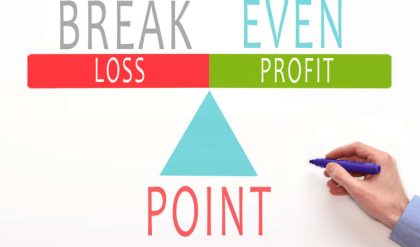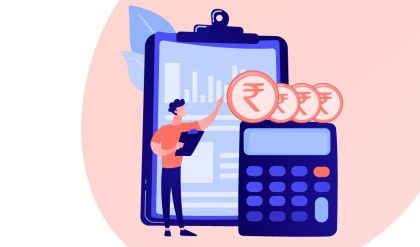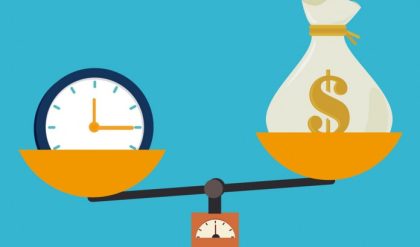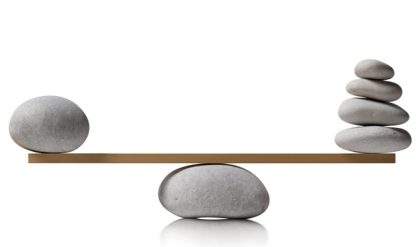Introduction Definitions and Basics
● Capitalism, from the Concise Encyclopedia of Economics
● Capitalism, a term of disparagement coined by socialists in the midnineteenth century, is a misnomer for “economic individualism,” which Adam Smith earlier called “the obvious and simple system of natural liberty.” Economic individualism’s basic premise is that the pursuit of self-interest and the right to own private property are morally defensible and legally legitimate. Its major corollary is that the state exists to protect individual rights. Subject to certain restrictions, individuals (alone or with others) are free to decide where to invest, what to produce or sell, and what prices to charge, and there is no natural limit to the range of their efforts in terms of assets, sales and profits, or the number of customers, employees, and investors, or whether they operate in local, regional, national, or international markets….
● Socialism, from the Concise Encyclopedia of Economics
● Socialism—defined as a centrally planned economy in which the government controls all means of production—was the tragic failure of the twentieth century. Born of a commitment to remedy the economic and moral defects of capitalism, it has far surpassed capitalism in both economic malfunction and moral cruelty. Yet the idea and the ideal of socialism linger on. Whether socialism in some form will eventually return as a major organizing force in human affairs is unknown, but no one can accurately appraise its prospects who has not taken into account the dramatic story of its rise and fall….
● Free Market, from the Concise Encyclopedia of Economics
● Free market is a summary term for an array of exchanges that take place in society. Each exchange is undertaken as a voluntary agreement between two people or between groups of people represented by agents. These two individuals (or agents) exchange two economic goods, either tangible commodities or nontangible services….
● Communism, from the Concise Encyclopedia of Economics
● Before the Russian Revolution of 1917, “socialism” and “communism” were synonyms. Both referred to economic systems in which the government owns the means of production. The two terms diverged in meaning largely as a result of the political theory and practice of Vladimir Lenin (1870-1924)….
● Marxism, from the Concise Encyclopedia of Economics
● The labor theory of value is a major pillar of traditional Marxian economics, which is evident in Marx’s masterpiece, Capital (1867). Its basic claim is simple: the value of a commodity can be objectively measured by the average amount of labor hours that are required to produce that commodity….
● Fascism, from the Concise Encyclopedia of Economics
● As an economic system, fascism is socialism with a capitalist veneer. The word derives from fasces, the Roman symbol of collectivism and power: a tied bundle of rods with a protruding ax. In its day (the 1920s and 1930s), fascism was seen as the happy medium between boom-and-bust-prone liberal capitalism, with its alleged class conflict, wasteful competition, and profit-oriented egoism, and revolutionary Marxism, with its violent and socially divisive persecution of the bourgeoisie. Fascism substituted the particularity of nationalism and racialism–“blood and soil”–for the internationalism of both classical liberalism and Marxism….
● What is Classical Liberalism? A LearnLiberty video on Youtube.
● Dr. Nigel Ashford explains the 10 core principles of the classical liberal & libertarian view of society and the proper role of government: 1) Liberty as the primary political value 2) Individualism 3) Skepticism about power 4) Rule of Law 5) Civil Society 6) Spontaneous Order 7) Free Markets 8) Toleration 9) Peace 10) Limited Government.
● What It Means to Be A Libertarian A LearnLiberty video on Youtube.
● What does it mean to be a libertarian? Dr. Jeffrey Miron at Harvard offers one answer. According to Miron, libertarians have enormous respect for individual decisions. While other ideologies attempt to use government force to advance their ideas of how people should act or behave, libertarians think that individuals should be able to live their own lives as they see fit.
● More Economic Systems
● Additional links.
In the News and Examples
● China’s Growth: Planning or Private Enterprise?, by Paul Gregory.
● China appears to have come through the world economic crisis better than many other countries. China’s admirers claim that, under China’s “state capitalism,” planners have guided large state companies rationally and wisely through the rough seas of the world economy. The Chinese Communist Party (CPC) plans, oversees, and administers the interwoven network of state banks, airlines, railroads, utilities, oil companies, and large manufacturers, all of which make up the economy’s “commanding heights” (to use Lenin’s term). As Europe and the United States slump, the CPC can speedily launch infrastructure projects or shift millions of migrant workers from one locality to another. There is no messy democracy to gum up the works. New York Times columnist Thomas Friedman extols: “A one party system can just impose the politically difficult but critically important policies needed to move a society forward in the 21st century.”
● But Ludwig von Mises in the 1920s and F. A. Hayek in the 1930s discredited the idea that planners can manage an entire economy. Hayek pointed out that central planners lack “the knowledge of the particular circumstances of time and place.” Because the planners do not have the information that rests with hundreds of thousands of companies and millions of consumers, planning fails, as it did spectacularly in the Soviet Union. Interestingly, even socialist economist Robert Heilbroner admitted as much. China is not an exception. Its economic growth has occurred despite the government’s economic planning and because of its large, dynamic private sector….
● Russ Roberts on the Least Pleasant Jobs. Podcast on EconTalk, April 21, 2008.
● EconTalk host Russ Roberts talks about the claim that for capitalism to succeed there have to be people at the bottom to do the unpleasant tasks and that the rich thrive because of the suffering of those at the bottom. He critiques the idea that capitalism is a zero sum game where to get ahead, someone has to fall back. He also looks at the evolution of the least pleasant jobs over time and how technology interacts with rising productivity to make the least pleasant jobs more pleasant….
● Karol Boudreaux on Wildlife, Property, and Poverty in Africa. Podcast on EconTalk, Sept. 22, 2008.
● Karol Boudreaux, Senior Research Fellow at the Mercatus Center at George Mason University, talks with EconTalk host Russ Roberts about wildlife management in Africa. Their conversation focuses on community-based wildlife management in Namibia, a policy to give communities the incentives to protect wildlife and avoid the tragedy of the commons.
● Futuristic economic systems: Patri Friedman on Seasteading. Podcast on EconTalk, Oct. 13, 2008.
● Patri Friedman, Executive Director of the Seasteading Institute, talks with EconTalk host Russ Roberts about seasteading, the creation of autonomous ocean communities as an alternative to existing political and cultural forms. Topics discussed include the political and economic viability of seasteading, risks of piracy, the aesthetics of living on the ocean, and the potential impact of seasteading on conventional governments.
● Alan Wolfe on Liberalism. Podcast on EconTalk, May 11, 2009.
● Alan Wolfe, Professor of Political Science at Boston College and author of The Future of Liberalism, talks with EconTalk host Russ Roberts about liberalism. Wolfe argues that the essence of liberalism is giving as many people as possible control over their own lives. Wolfe traces the evolution of liberalism through Western civilization. He rejects the distinction between modern liberalism and classical liberalism seeing Adam Smith as a liberal but not F. A. Hayek. The conversation closes with a discussion of the role of competition in encouraging religiosity in the United States.
● Economic Freedom and Growth, a LearnLiberty video.
● Prof. Josh Hall explains how greater economic freedom leads to higher incomes and more economic development over time.
● Economic Freedom of the World, a LearnLiberty video.
● Prof. Robert Lawson describes the Economic Freedom of the World project, which is an empirical study that demonstrates the benefits of free economies.
● Economic Freedom and a Better Life, a LearnLiberty video.
● Prof. Josh Hall uses average income, life expectancy, and other factors to show the correlation between economic freedom and greater human wellbeing.
● Economics in democracy: Bryan Caplan on the Myth of the Rational Voter. EconTalk podcast, June 25, 2007.
● Bryan Caplan, of George Mason University and blogger at EconLog, talks about his book, The Myth of the Rational Voter: Why Democracies Choose Bad Policies. Caplan argues that democracies work well in giving voters what they want but unfortunately, what voters want isn’t particularly wise, especially when it comes to economic policy. He outlines a series of systematic biases we often have on economic topics and explains why we have little or no incentive to improve our understanding of the world and vote wisely. So, it’s not special interests that are messing things up but the very incentives that lie at the heart of a vote-based system….
● Russia’s Economy: Putin and the KGB State, by Paul Gregory.
● Ater more than a decade of Vladimir Putin’s rule, Russia has become a “KGB state.” Although the KGB was abolished in 1991 after its chairman, Vladimir Kryuchhov, participated in the failed coup d’etat against USSR president Mikhail Gorbachev, the KGB mentality still thrives. Russian is run by former KGB officials and Kremlin-friendly oligarchs. They control industry, commerce, media, and banking, conduct covert operations at home and abroad, and operate their own prisons. They order telephone justice (tell judges their verdicts) and gather compromising material to intimidate opponents. If they do not directly order assassinations, they make sure that those who do are not caught. Outsiders do not know how the KGB state works. Insiders may be confused as well….
● Alternative systems for writing an encyclopedia: Jimmy Wales on Wikipedia. EconTalk podcast, March 9, 2009.
● Jimmy Wales, founder of Wikipedia, talks with EconTalk host Russ Roberts about the birth and growth of Wikipedia. He talks about the role of Hayek’s insights into the design of Wikipedia, how Wikipedia deals with controversy, the reliability of Wikipedia relative to traditional reference sources and the future possibilities for projects that rely on voluntary contributions of time and creativity.
● The Road To Hell Was Paved With Bad Intentions, by Bryan Caplan at The Distributed Republic. May 1, 2006.
● Like the Nazis, the Communists murdered tens of millions. But even today, few people hold both movements in equal contempt. Citizens of the West remain largely ignorant of the crimes of Lenin, Stalin, and Mao. But even those who know what happened shy away from the thesis that the two movements were morally equivalent. Why is this?…
A Little History: Primary Sources and References
● The Decline of Classical Liberalism, Part 1. A LearnLiberty video.
● Dr. Stephen Davies traces the decline of classical liberal/libertarian ideas from the mid-19th century through the mid-20th century. He describes how the case for classical liberal ideas grew stale and fell prey to competing ideologies like socialism, fascism, and welfare liberalism….
● The Decline of Classical Liberalism, Part 2. A LearnLiberty video.
● Dr. Stephen Davies shows how classical liberal ideas grew as an intellectual movement in the seventeenth century and gradually gained popular support. This rise of political ideas based on free markets and individual liberty achieved several notable political goals in the 19th century, such as abolition of slavery, extension of the franchise, and freer international trade.
● Larry White on the Clash of Economic Ideas. EconTalk Podcast.
● Lawrence H. White of George Mason University and author of The Clash of Economic Ideas talks to EconTalk host Russ Roberts about the economists and their ideas of the past one hundred years. They discuss Keynes and Hayek, monetary policy and the Great Depression, Germany after the Second World War, the economy of India, and the future of monetary policy.
● Brink Lindsey on the Age of Abundance. Podcast on EconTalk, March 30, 2009.
● Brink Lindsey, of the Cato Institute and author of The Age of Abundance: How Prosperity Transformed America’s Politics and Culture, talks with EconTalk host Russ Roberts about the interaction between culture and politics and prosperity. Lindsey outlines the nature of prosperity in America in the 20th century, then focuses on the last half of the century when cultural change was perhaps as dramatic as economic change. The conversation concludes with a discussion of Lindsey’s essay, “Paul Krugman’s Nostalgianomics,” a look at the longing for a return of the economic policy of the 1950s. Lindsey argues that the policies that led to a more egalitarian distribution of income in the 1950s had other much less attractive characteristics.
● The Roots of Freedom in Ancient Greece. Youtube. A LearnLiberty Video.
● Philosophy professor Mark LeBar discusses how core ideas in classical liberal thought, such as individualism, sociability, and justice, originated in Ancient Greece.
● Ober on the Ancient Greek Economy. EconTalk Podcast.
● Josiah Ober of Stanford University talks with EconTalk host Russ Roberts about the economy of ancient Greece, particularly Athens. Ober notes that the standard view of ancient Greece is that it was very poor. Drawing on various kinds of evidence, Ober argues that Greece was actually quite successful, and that the average citizen of ancient Athens lived quite well by ancient standards. He suggests two possible explanations for Greece’s economic success–an openness of the political process that reduced transaction costs and encouraged human capital investment or innovation and cross-fertilization across Greek states. The conversation also explores the nature of evidence for understanding antiquity and the prospect for future discoveries pertaining to ancient Greece.
● Capital: A Critique of Political Economy (Das Kapital), by Karl Marx. In three volumes.
● The wealth of those societies in which the capitalist mode of production prevails, presents itself as “an immense accumulation of commodities,” its unit being a single commodity. Our investigation must therefore begin with the analysis of a commodity….
● Socialism, by Ludwig von Mises.
● It is a matter of dispute whether, prior to the middle of the nineteenth century, there existed any clear conception of the socialist idea—by which is understood the socialization of the means of production with its corollary, the centralized control of the whole of production by one social or, more accurately, state organ. The answer depends primarily upon whether we regard the demand for a centralized administration of the means of production throughout the world as an essential feature in a considered socialist plan. The older socialists looked upon the autarky of small territories as ‘natural’ and on any exchange of goods beyond their frontiers as at once ‘artificial’ and harmful…. [from the Preface to the Second Edition]
● Fabian Essays in Socialism George Bernard Shaw, editor.
● ALL economic analyses begin with the cultivation of the earth. To the mind’s eye of the astronomer the earth is a ball spinning in space without ulterior motives. To the bodily eye of the primitive cultivator it is a vast green plain, from which, by sticking a spade into it, wheat and other edible matters can be made to spring. To the eye of the sophisticated city man this vast green plain appears rather as a great gaming table, your chances in the game depending chiefly on the place where you deposit your stakes…..
Advanced Resources
● Boettke on Living Economics. EconTalk Podcast.
● Peter Boettke of George Mason University talks with EconTalk host Russ Roberts about his book, Living Economics. Boettke argues for embracing the tradition of Smith and Hayek in both teaching and research, arguing that economics took a wrong turn when it began to look more like a branch of applied mathematics. He sees spontaneous order as the central principle for understanding and teaching economics. The conversation also includes a brief homage to James Buchanan who passed away shortly before this interview was recorded.
● Nozick on Civil and Economic Liberties Youtube. A LearnLiberty video.
● In an interview, philosophy professor Chris Frieman discusses the work of 20th century philosopher Robert Nozick. In this segment, he describes how Nozick’s endorsement of civil liberties led him to support similar liberties for economic decisions.
● Is economics a science? Henderson on Disagreeable Economists. EconTalk podcast, July 30, 2007.
● David Henderson, editor of the Concise Encyclopedia of Economics and a research fellow at Stanford’s Hoover Institution, talks with EconTalk host Russ Roberts about when and why economists disagree. Harry Truman longed for a one-armed economist, one willing to go out on a limb and take an unequivocal position without adding “on the other hand…”. Truman’s view is often reflected in the public’s view that economic knowledge is inherently ambiguous and that economists never agree on anything. Henderson claims that this view is wrong–that there is substantial agreement among economists on many scientific questions–while Roberts wonders whether this consensus is getting a bit frayed around the edges. The conversation highlights the challenges the everyday person faces in trying to know when and what to believe when economists take policy positions based on research. Is it biased or science?
● The Nature and Significance of Marx’s: Capital: A Critique of Political Economy, at Econlib
● There are not two Smiths (the economist and the moral philosopher). There’s one. And the same holds for Marx. His efforts in Capital are best understood in light of his 1844 Manuscripts….
Arnold Kling’s essays on the Meaning of Being Libertarian. A series of Econlib Featured Articles starting Sep. 19, 2012.





